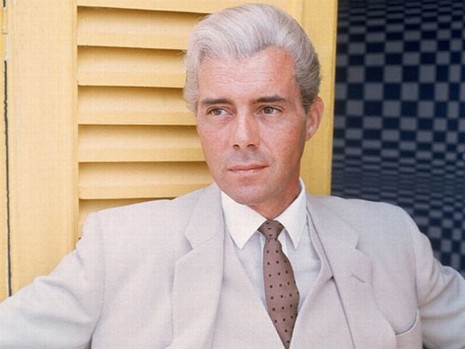
Bishopbriggs was where the trams from Glasgow ended. It was also where Dirk Bogarde spent his early teenage years, from 1934-37, living with a well-to-do uncle and aunt, while commuting to-and-from Allan Glen School in the city.
Glasgow shaped Bogarde, and though he hated his time there, he latter admitted, in his first volume of autobiography, A Postilion Struck by Lightning:
‘The three years in Scotland were, without doubt, the most important years of my early life. I could not, I know now, have done without them. My parents, intent on giving me a solid, tough scholastic education to prepare me for my Adult Life, had no possible conception that the education I would receive there would far outweigh anything a simple school could have provided.’
What Glasgow gave the young Bogarde, after his childhood idyll of Sussex, was “a crack on the backside which shot [him] into reality so fast [he] was almost unable to catch [his] breath for the pain and disillusions which were to follow.”
At Allan Glen’s School, Bogarde soon found himself “dumped in a lavatory pan by mindless classmates” because he spoke with “the accent of a Sassenach”. It was part of the cruelty that taught the young Bogarde to build a “carapace” against his peers. In his isolation he developed his skills as an artist and writer, and dreamt of escape.
Glasgow also offered Bogarde his first sexual experience with an older man - the dressed in beige Mr. Dodd, who he met whilst skipping classes at the Paramount Picture Palace - “the meeting place of all the Evil in Glasgow”.
Mr. Dodd seduced the young schoolboy with an ice lolly and a hand on the knee, during a performance of Boris Karloff’s The Mummy. Though Bogarde had seen the film 3 times before, he was keen to replicate Karloff’s performance, and so willingly returned to Mr Dodd’s apartment, where he was tightly trussed-up in bandages, all except his pubescent genitals, which thrust through the swaddling rags “as pink and vulnerable as a sugar mouse.” Mr. Dodd flipped Bogarde onto a bed, and tossed him off. Bogarde felt something terrible was going to happen, and offered up 3 or 4 “Hail Mary’s” in the hope of being rescued. Of course, he knew God’s help wouldn’t arrive, as he knew what would happen as Mr Dodd fiddled about.
When he left Glasgow, Bogarde was changed. He had developed the drive that would bring him success, and formed a personality that would keep the world twice-removed from the creative and sensitive young man he was at heart.
The following interview with this charming man was never broadcast on TV. Recorded in London for the release of the film Permission to Kill (aka The Executioner) in 1975, Bogarde discussed the movie, and his career with interviewer, Mark Caldwell.
Previously on Dangerous Minds






